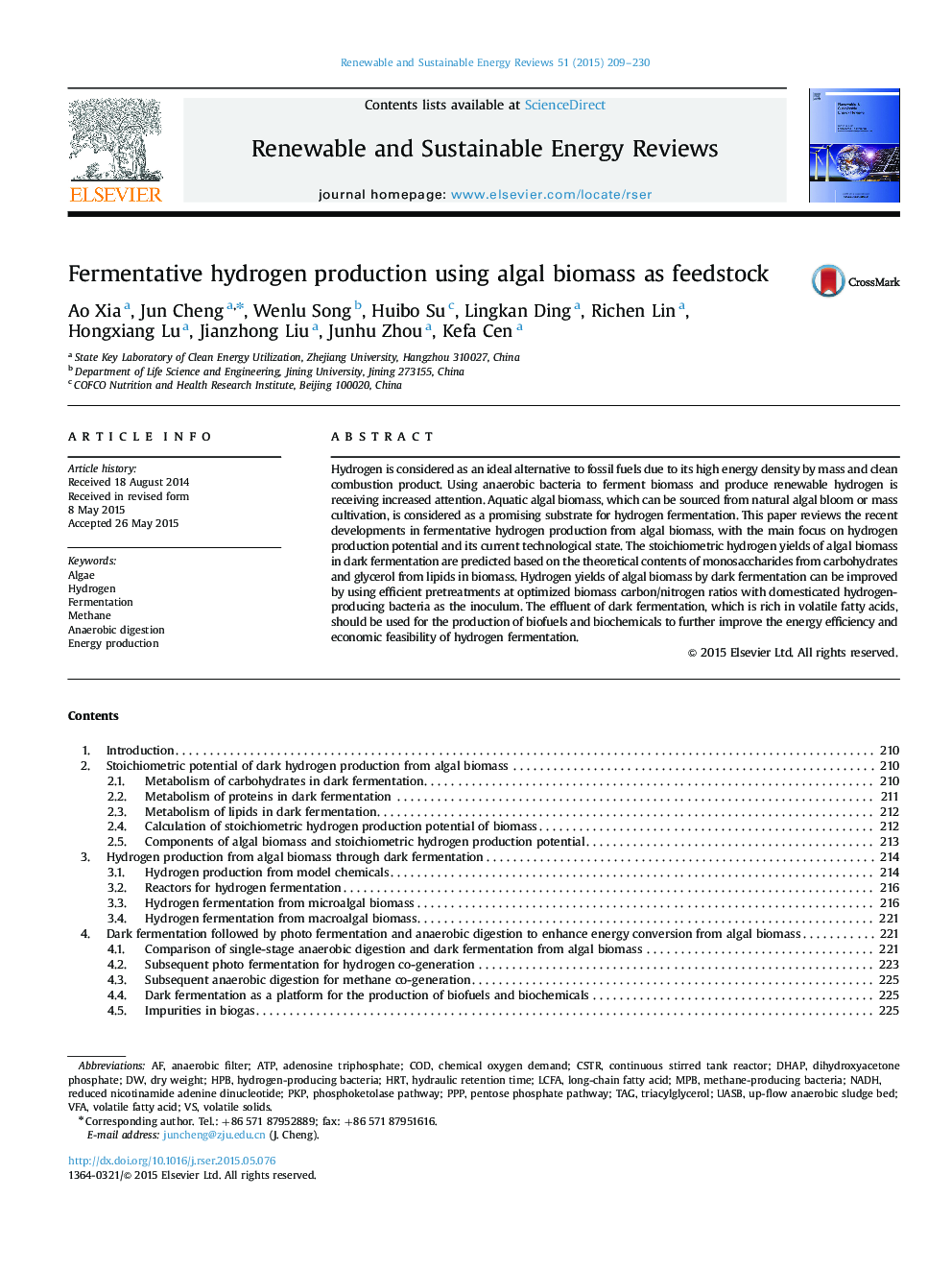| Article ID | Journal | Published Year | Pages | File Type |
|---|---|---|---|---|
| 8115658 | Renewable and Sustainable Energy Reviews | 2015 | 22 Pages |
Abstract
Hydrogen is considered as an ideal alternative to fossil fuels due to its high energy density by mass and clean combustion product. Using anaerobic bacteria to ferment biomass and produce renewable hydrogen is receiving increased attention. Aquatic algal biomass, which can be sourced from natural algal bloom or mass cultivation, is considered as a promising substrate for hydrogen fermentation. This paper reviews the recent developments in fermentative hydrogen production from algal biomass, with the main focus on hydrogen production potential and its current technological state. The stoichiometric hydrogen yields of algal biomass in dark fermentation are predicted based on the theoretical contents of monosaccharides from carbohydrates and glycerol from lipids in biomass. Hydrogen yields of algal biomass by dark fermentation can be improved by using efficient pretreatments at optimized biomass carbon/nitrogen ratios with domesticated hydrogen-producing bacteria as the inoculum. The effluent of dark fermentation, which is rich in volatile fatty acids, should be used for the production of biofuels and biochemicals to further improve the energy efficiency and economic feasibility of hydrogen fermentation.
Keywords
VFAMethane-producing bacteriaPKPMPBLCFADHAPHPBPPPUASBHRTCSTRAdenosine TriphosphateATPLong-chain fatty acidvolatile fatty acidhydrogen-producing bacteriaFermentationtriacylglycerolTAG یا triacylglycerols chemical oxygen demandEnergy productionAlgaedihydroxyacetone phosphatecontinuous stirred tank reactorhydraulic retention timeAnaerobic filterMethanepentose phosphate pathwayNADHAnaerobic digestionHydrogendry weightCodreduced nicotinamide adenine dinucleotide
Related Topics
Physical Sciences and Engineering
Energy
Renewable Energy, Sustainability and the Environment
Authors
Ao Xia, Jun Cheng, Wenlu Song, Huibo Su, Lingkan Ding, Richen Lin, Hongxiang Lu, Jianzhong Liu, Junhu Zhou, Kefa Cen,
